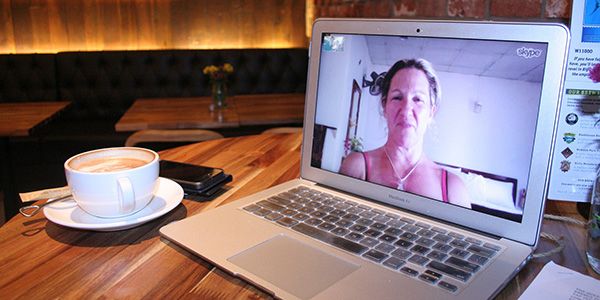
Delivering treatment for OCD during a pandemic
Introduction
The pandemic has had a dramatic effect on the whole of the NHS, but it has also affected the availability of services for OCD. Not only that, but the nature of the pandemic will have had effects on many people with OCD; particularly those with contamination obsessions and cleaning compulsions.
In this article, I discuss what we have learned so far.
Assessment can be done for most people using videoconferencing
Previously, most new assessments took place over the course of a single day. This was potentially intensive for many people, and required quite a logistical commitment from many families to attend Dundee. Moving to videoconferencing has allowed the assessment process to be spread over several days to be more convenient for people and their families.
It also reduces travel for most people, particularly those that don't live in the central belt of Scotland.
Treatment can also be provided remotely
Our experience so far suggests that remote treatment has good acceptability for most people and it offers high levels of flexibility in terms of matching therapist with patient.
As discussed elsewhere, our choice of inference-based therapy means that in vivo exposure is reduced and high levels of anxiety are not automatically required for treatment effectiveness. This can be an advantage when people are spending more time at home and probably have less access to services. Leaving someone very distressed and anxious, in a stressed family environment, and without access to other supports is obviously undesirable.
Despite the technology, face-to-face contact is still needed
There are situations where face-to-face is still required. These include:
- Where people are not comfortable with, or struggle to use, the technology.
- Where it is not possible to fully understand how the OCD works. In these situations, working through the processes using a flip board is still the best way.
Many of the key components of good clinical assessment have to be adapted, but not replaced
Many of the things that we consider to be important still have to be done. For example:
- Detailed case note review. This enables us to build up a robust understanding of what has been tried, whether previous treatments are adequate, and if there are 'gaps' in treatment.
- Good informant history. Building up a picture of how someone's OCD affects them and those close to them is essential for gaining knowledge about how treatment might look.
- Working with families. This is crucial for optimising treatment and embedding change in the whole system.
- Working alongside local teams. Many local teams will have reduced capacity than previously because of the pandemic. However, ensuring their engagement and enabling them to support the patient and their family is essential for effective treatment.
[Image by Free-Photos from Pixabay.]
Last Updated on 9 November 2023 by David Christmas
